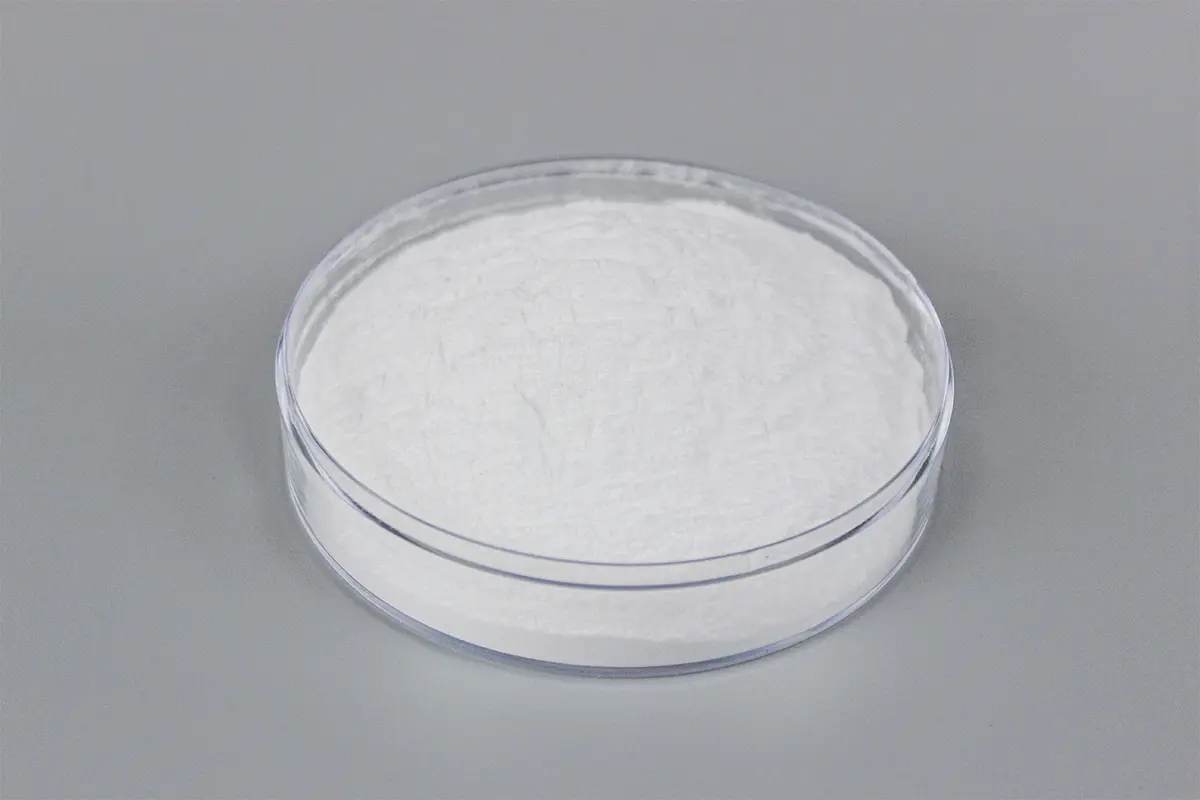Magnesium phosphate is a crucial, yet often overlooked, inorganic compound vital for numerous bodily functions. This article dives deep into what magnesium phosphate is, its diverse applications, the health benefits it provides, and why, in certain circumstances, a supplement might be beneficial. We’ll explore everything from its role in bone health to its impact on managing conditions like diabetes. This comprehensive guide is designed to give you a clear understanding of this essential mineral.
1. What Exactly is Magnesium Phosphate?
Magnesium phosphate is an inorganic salt formed from magnesium and phosphate. Phosphate is one of the most critical inorganic anions within our cells. Magnesium phosphate is widely distributed throughout the human body. It’s a vital compound involved in a vast array of biological processes. Chemically, it exists in various forms, including monomagnesium phosphate, dibasic magnesium phosphate, and trimagnesium phosphate, each with slightly different properties and uses.
Magnesium phosphate is essential because both magnesium and phosphate are indispensable for life. Magnesium is a cofactor in over 300 enzyme systems that regulate diverse biochemical reactions in the body, including protein synthesis, muscle and nerve function, blood glucose control, and blood pressure regulation. Phosphate, on the other hand, is a structural component of cell membranes (phospholipid) and nucleic acids (DNA and RNA) and is crucial for energy storage and transfer (as part of ATP – adenosine triphosphate).
2. How Does Magnesium Phosphate Benefit Bone Health?
A primary function of magnesium phosphate is its contribution to bone health. Our bones are not just made of calcium; they also require phosphorus and magnesium for optimal structure and strength. Approximately 60% of the body’s magnesium and 85% of its phosphate are stored in the bones.
Magnesium phosphate contributes significantly to bone density. It works synergistically with calcium to form the hard mineral matrix of bones. Magnesium phosphate has demonstrated osteogenic (bone-forming) properties. Phosphate is a key component of hydroxyapatite, the mineral crystal that gives bones their rigidity. Adequate intake of magnesium also helps to regulate calcium levels, and magnesium phosphate helps make better bone. This balance is vital for maintaining strong, healthy bones and preventing conditions like osteoporosis.
Studies have shown that adequate magnesium intake may be just as crucial as calcium, regarding bone structure.
3. What Role Does Magnesium Phosphate Play in Energy Production?
Magnesium phosphate plays a pivotal role in energy metabolism. As mentioned earlier, phosphate is a key component of ATP (adenosine triphosphate), the primary energy currency of the cell. ATP stores and transports chemical energy within cells for metabolism.
Magnesium is required for ATP to be biologically active. The ATP that provides energy for most metabolic processes is actually Mg-ATP, a complex of magnesium and ATP. This means that every time your muscles contract, your heart beats, or a nerve fires, magnesium phosphate is indirectly involved, powering these processes. Deficiencies in magnesium can lead to fatigue and reduced energy levels. The acid-base balance in the body, also crucial for energy production, is also influenced by phosphate.
4. Can Magnesium Phosphate Help Manage Diabetes?
Emerging research suggests a link between magnesium levels and diabetes, specifically type 2 diabetes. Magnesium plays a role in glucose control and insulin metabolism. Low magnesium levels are frequently observed in individuals with type 2 diabetes, and studies suggest that magnesium supplementation may improve insulin sensitivity.
Magnesium phosphate, by providing both magnesium and phosphate, may contribute to better glucose management. While more research is needed to establish a direct causal link and determine optimal dosages, maintaining adequate magnesium levels is generally considered beneficial for individuals with or at risk of diabetes. Inflammation, a common factor in diabetes, may also be modulated by magnesium.
Studies have suggested that magnesium intake could reduce the incidence of diabetes.
5. Is Magnesium Phosphate Beneficial for Nerve and Muscle Function?
Magnesium is well-known for its importance in nerve and muscle function. It acts as a natural calcium blocker, helping muscles relax after contraction. This is why magnesium deficiency can manifest as muscle cramps, spasm, and twitches.
Magnesium phosphate contributes to healthy nerve transmission. It helps regulate the flow of calcium ions in neuronal cells, which is essential for proper nerve signal transmission. The neuromuscular junction, where nerve signals stimulate muscle contraction, relies on adequate magnesium levels. Therefore, ensuring adequate magnesium intake, potentially through magnesium phosphate, can support optimal nerve and muscle function, promoting relaxation and reducing the risk of cramps.

6. What are the Industrial Applications of Magnesium Phosphate?
Beyond its biological roles, magnesium phosphate has diverse industrial applications. It is widely used in various fields due to its unique properties.
One major application is in the production of cement. Magnesium phosphate cements (MPCs) are known for their rapid setting and high early strength. They are used in specialized construction applications, such as repairing roads and bridges, where fast setting times are crucial. MPCs are formed by reacting magnesium oxide with a phosphate solution, often using dibasic magnesium phosphate.
Another application is as a food additive. Certain forms of magnesium phosphate are used as pH regulators, anti-caking agents, and stabilizers in processed foods. It also finds application in the analytical chemistry, and its use in ceramics.
Global magnesium phosphate market size was valued at USD 1.24 Billion in 2022.
7. Magnesium Phosphate vs. Other Forms of Magnesium: What’s the Difference?
There are many different forms of magnesium available as supplements, including magnesium citrate, magnesium oxide, magnesium glycinate, and, of course, magnesium phosphate. The key difference lies in their bioavailability – how well the body can absorb and utilize the magnesium – and their specific effects.
Magnesium phosphate is not as commonly used as a standalone supplement compared to forms like magnesium citrate or glycinate. Citrate is often favored for its laxative effect, while glycinate is praised for its high absorption and gentleness on the stomach. Magnesium phosphate‘s strength lies in providing both magnesium and phosphate, making it particularly relevant when both minerals are needed, such as in bone health or specific metabolic disorders. The form of Magnesium that is best depends on your specific requirements, and is readily available.
8. How Much Magnesium Phosphate Do I Need, and What are the Risks of Deficiency?
The Recommended Dietary Allowance (RDA) for magnesium varies depending on age, sex, and other factors. Generally, adult men need around 400-420 mg of elemental magnesium per day, while adult women need around 310-320 mg per day. Obtaining this amount of magnesium from food is achievable through a balanced diet rich in green leafy vegetables, nuts, seeds, and whole grains. Legume is another source of magnesium. However, some individuals may have low magnesium intake or increased needs due to certain medical conditions, medications, or lifestyle factors.
The recommended daily maximum intake of magnesium is 400mg per day unless prescribed by a medical expert.
Magnesium deficiency, although not always easily detectable, can have significant health consequences. Symptoms can range from mild (fatigue, muscle weakness, loss of appetite) to severe (neuromuscular problems, seizures, heart rhythm abnormalities). Long-term magnesium deficiency is linked to an increased risk of chronic diseases, including osteoporosis, diabetes, and cardiovascular disease.
High magnesium is also a problem and can have severity in health related issues.
9. What Should I Look for in a Magnesium Phosphate Supplement?
If you suspect you might need a magnesium phosphate supplement, or your healthcare provider recommends one, it’s essential to choose a high-quality product. Look for supplements from reputable manufacturers that clearly state the magnesium content and the form of magnesium phosphate used (e.g., dibasic, trimagnesium).
Consider the bioavailability of the specific form. While magnesium phosphate itself might not be as efficiently absorbed as some other forms, its dual provision of magnesium and phosphate can be advantageous in specific situations. Read the label carefully for any added ingredients, and opt for products that are free of unnecessary fillers, artificial colors, and preservatives. It is always best to consult with a healthcare professional before starting any new supplement. A simple way to help achieve the recommended intake of magnesium.

10. Are There Any Side Effects of Taking Magnesium Phosphate?
Magnesium phosphate, when taken within the recommended dosage range, is generally considered safe for most people. However, high doses of magnesium from supplements can sometimes cause digestive upset, including diarrhea, nausea, and abdominal cramping. This is more common with certain forms of magnesium, such as magnesium oxide.
It’s crucial to avoid exceeding the tolerable upper intake level (UL) for magnesium from supplements, which is 350 mg of elemental magnesium per day for adults (this UL does not apply to magnesium obtained from food). Individuals with kidney problems should be particularly cautious with magnesium supplements, as their kidneys may not be able to excrete excess magnesium efficiently. Always consult with your healthcare provider before taking magnesium phosphate or any other supplement, especially if you have any underlying health conditions or are taking medications. It is also crucial to access all our reports and understand the details before taking supplements.
Phosphate supplements are necessary only when prescribed.

In summary, the most important things to keep in mind are:
- Magnesium phosphate is an inorganic compound essential for numerous bodily functions, particularly bone health, energy production, nerve and muscle function, and potentially glucose control.
- It provides both magnesium and phosphate, two vital minerals with interconnected roles.
- The preparation of Magnesium Phosphate occurs through the partial neutralization of phosphoric acid with magnesium bases, such as magnesium oxide.
- While many foods contain magnesium, some individuals may benefit from a magnesium phosphate supplement, especially if they have a deficiency or specific health needs.
- There are methods for the preparation of magnesium hydrogen phosphate compositions, including magnesium-based compositions and methods of using the same. One example is the controlled synthesis of hydrated magnesium phosphate (MPC) and magnesium potassium phosphate (MPPC) cements through neutralization of phosphoric acid by magnesium oxide in the presence of retarding agents. The retarding agents may be borax or boric acid.
- The global magnesium phosphate market is segmented on the basis of form, application, and region. The report presents a detailed analysis of the impact of the COVID-19 pandemic, featuring a comprehensive breakdown of the market. Further insights are provided, illustrating the banking sector globally and its influence on the market in real-time.
- Choose supplements wisely, considering the form, dosage, and any potential side effects.
- This is because magnesium plays an important role along the hypothalamus-pituitary-adrenal (axis), thus making it very useful in combating stress.
- Magnesium also plays a role in decreasing inflammation, reducing oxidative stress and also aiding in DNA repair.
- A magnesium deficiency can cause an increased risk of mortality.
- It is crucial to consult with a healthcare professional before starting any new supplement regimen.
- For specialized needs, consider Sodium Diacetate, a key ingredient in various industrial and food applications.
- Explore Trisodium Phosphate for its versatile applications.
- Check our offering of Dipotassium Phosphate.
- Phosphate and magnesium in their alkaline conditions provide a good constituent for health.
Post time: Mar-11-2025










